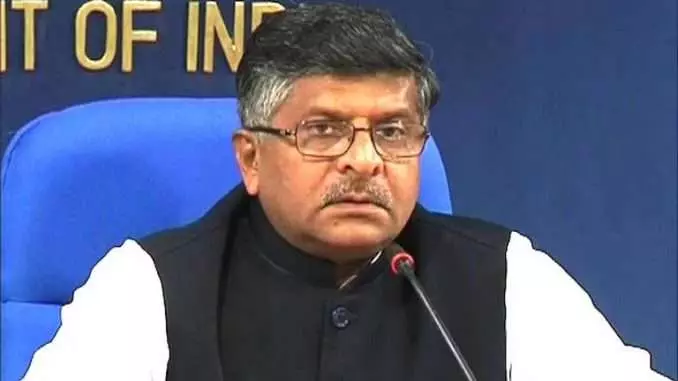Creating an alarm for social media platforms like Facebook, India warned that stringent actions would be taken in case any attempt was made so as to influence through “undesirable means”the way the electoral process works in the country.
Amidst all kinds of investigations being conducted by British lawmakers and US privacy regulators concerning the issue of breach of privacy, along with user confidentiality by Facebook, Ravi Shankar Prasad, IT and law minister stated that the Indian government is in full support of freedom of expression, speech and press and is completely open to exchange of opinions and ideas on different social media platforms.
Nonetheless, any attempt made by these platforms including Facebook to influence the country’s electoral process by way of undesirable means will not be accepted, he told the reporters in the complex of Parliament House.
He remarked, “Let me make it very, very clear, we fully support freedom of press, speech and expression; we fully support free exchange of ideas on social media. But any attempt, covert or overt, by social media, including Facebook, of trying to influence India’s electoral process through undesirable means will neither be appreciated nor be tolerated. If need be, stringent action will be taken.”
He further added that 20 crore citizens of the country are using Facebook, that makes it the company’s largest market out of United States of America, Prasad warned the social media trailblazer along with its CEO Mark Zuckerberg of serious consequences under the IT Act in case any incident of data breach comes into notice.
He warned Zuckerberg saying, “Mr Mark Zuckerberg you better note the observation of the IT Minister of India. We welcome the FB profile in India, but if any data theft of Indians is done through the collusion of FB system, it shall not be tolerated. We have got stringent power in the IT Act, we shall use it, including summoning you in India”.
When asked in case the government would start an investigation on the use of data by Facebook, he stated that India has a regulatory body of Telecom Regulatory Authority of India (TRAI) and if any special complaints are there, the same would be treated under a prearranged probe.
Moreover, this is not the first clash between Facebook and Indian lawmakers. Back in the year 2016, TRAI had issued regulations on discriminating pricing on internet access that had given rise to a ban of Free Basics of Facebook.
Prasad said, “The issue concerns national interest and national security. And the BJP will take it very seriously if by collusive methods the data assets of Indians are pilfered … My caution is with regard to the democratic process”.
Further, the US Federal Trade Commission (FTC), which is an autonomous government body and has been charged with ensuring that the companies adhere to their own privacy policies, is scanning if Facebook violated a consent order after the media reports accused that it had shared the data of millions of users to a political consultancy.
Ravi Shankar asked, “My question to Congress party is whether to win elections, Congress will depend on data manipulation and theft of data. What is the role of Cambridge Analytica in social media profile of Rahul Gandhi?”
Citing the reports, he alleged that Cambridge Analytica, the agency hired by Congress to conduct its campaign for 2019 which is called ‘Brahmastra’ in different sections of media- is alleged of using sex workers and bribes to trap the politicians and stealing data from Facebook.
Prasad wanted to know from the Congress party as to how much data trade it had with Cambridge Analytica in view of recent Gujarat and northeast elections, and the upcoming elections in Karnataka.
As an independent media platform, we do not take advertisements from governments and corporate houses. It is you, our readers, who have supported us on our journey to do honest and unbiased journalism. Please contribute, so that we can continue to do the same in future.

